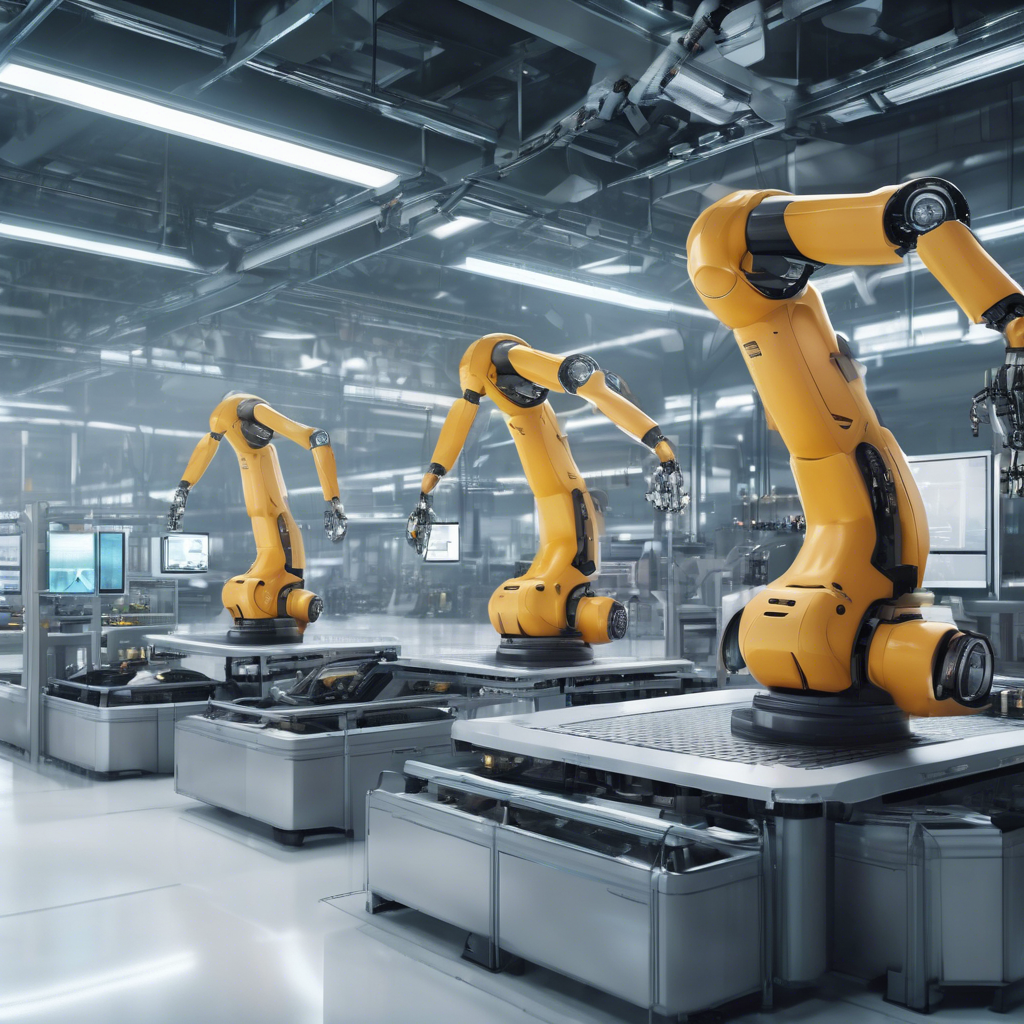How Artificial Intelligence is Transforming Manufacturing Efficiency and Productivity

Brief news summary
Artificial intelligence (AI) is revolutionizing manufacturing by optimizing processes, improving efficiency, and enabling real-time equipment monitoring. It facilitates predictive maintenance, which reduces downtime and extends machine lifespan, while enhancing productivity through timely adjustments. Leveraging extensive supply chain data, AI identifies bottlenecks, streamlines operations, lowers costs, and accelerates production, resulting in higher-quality products and faster market delivery. Machine learning aids in preventing breakdowns and reducing repair costs. However, challenges such as integrating diverse data systems, upgrading workforce skills, and managing increased cybersecurity risks from IoT connectivity persist. Legacy equipment complicates data consolidation, making employee training and strong cybersecurity essential. Addressing these issues enables manufacturers to fully harness AI’s potential, driving innovation and maintaining a competitive advantage.Artificial intelligence (AI) is becoming increasingly essential in revolutionizing the manufacturing industry by optimizing production workflows and boosting operational efficiency. Manufacturers worldwide are embracing AI technologies to continuously monitor equipment performance, anticipate maintenance needs proactively, and adjust production schedules dynamically in real time, thereby minimizing downtime and enhancing overall productivity. A significant advantage of integrating AI in manufacturing is its capacity to analyze extensive supply chain data to detect bottlenecks and inefficiencies. By identifying these issues, AI can suggest actionable improvements that streamline operations, cut costs, and speed up production timelines. This leads to substantial cost savings for companies, better product quality, and quicker time-to-market—critical factors in today’s competitive global markets. Furthermore, AI-driven predictive maintenance enables manufacturers to avert unexpected equipment failures that disrupt production and incur high costs. By employing machine learning algorithms to scrutinize performance data, manufacturers can forecast potential machine breakdowns and schedule maintenance preemptively. This proactive approach shifts from reactive to predictive maintenance, extending equipment lifespan, lowering repair expenses, and decreasing unplanned downtime. Despite these numerous benefits, manufacturers face considerable challenges in fully harnessing AI’s potential. A primary obstacle is data integration, as manufacturing environments typically comprise diverse systems and legacy machinery that often lack seamless connectivity.
Merging data from multiple sources into a cohesive platform is vital for effective AI-driven analysis but demands significant investment and technical know-how. Another crucial factor is workforce training. As AI reshapes manufacturing management, employees need to acquire new skills to operate AI-based systems and accurately interpret their outputs. Investing in thorough training programs helps ensure staff can adapt to technological advancements and collaborate efficiently with AI tools. Additionally, implementing robust cybersecurity measures is essential to protect sensitive production data and guard against cyber threats. The growing interconnectivity of manufacturing equipment through the Internet of Things (IoT) broadens the vulnerability landscape, making it imperative for organizations to enforce strong security protocols and continuous monitoring to secure their operations. In summary, the integration of artificial intelligence into manufacturing processes offers transformative benefits such as improved efficiency, cost reduction, and enhanced product quality. However, to capitalize on these advantages, manufacturers must address challenges related to data integration, workforce preparedness, and cybersecurity. By proactively tackling these issues, companies can leverage AI to secure a competitive advantage and foster innovation within the manufacturing sector.
Watch video about
How Artificial Intelligence is Transforming Manufacturing Efficiency and Productivity
Try our premium solution and start getting clients — at no cost to you

I'm your Content Creator.
Let’s make a post or video and publish it on any social media — ready?
Hot news

AIMM: AI-Driven Framework for Detecting Social-Me…
AIMM: An Innovative AI-Driven Framework to Detect Social-Media-Influenced Stock Market Manipulation In today's fast-changing stock trading environment, social media has emerged as a key force shaping market dynamics

Exclusive: Filevine Acquires Pincites, AI-Powered…
Legal technology firm Filevine has acquired Pincites, an AI-driven contract redlining company, enhancing its footprint in corporate and transactional law and advancing its AI-focused strategy.

AI's Impact on SEO: Transforming Search Engine Op…
Artificial intelligence (AI) is rapidly reshaping the field of search engine optimization (SEO), providing digital marketers with innovative tools and new opportunities to refine their strategies and achieve superior results.

Deepfake Detection Advances with AI Video Analysis
Advancements in artificial intelligence have played a crucial role in combating misinformation by enabling the creation of sophisticated algorithms designed to detect deepfakes—manipulated videos where original content is altered or replaced to produce false representations intended to deceive viewers and spread misleading information.

5 Best AI Sales Systems That Convert Without Huma…
The rise of AI has transformed sales by replacing lengthy cycles and manual follow-ups with fast, automated systems operating 24/7.

Latest AI and Marketing News: Weekly Roundup (Dec…
In the swiftly evolving realm of artificial intelligence (AI) and marketing, recent significant developments are shaping the industry, introducing both new opportunities and challenges.

OpenAI sees better margins on business sales, rep…
The publication stated that the company enhanced its “compute margin,” an internal metric representing the portion of revenue remaining after covering the costs of operating models for paying users of its corporate and consumer products.
AI Company
Launch your AI-powered team to automate Marketing, Sales & Growth

and get clients on autopilot — from social media and search engines. No ads needed
Begin getting your first leads today








